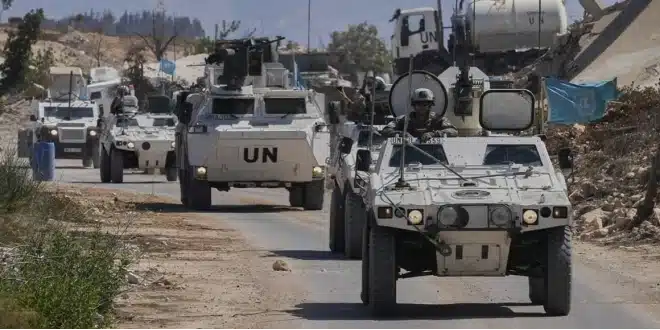The UN Security Council is preparing to vote on a resolution that would bring an end to the long-running UN peacekeeping mission in southern Lebanon, known as UNIFIL, by December 31, 2026. If approved, the resolution would mark the conclusion of more than 40 years of continuous UN presence in the region.
Two diplomats confirmed late Wednesday that the United States, which had previously pushed for the force to be dismantled within a year, raised no objections to a French-proposed draft extending the withdrawal timeline to just over 16 months. While this suggests the measure will pass, it remains unclear whether Washington will cast a supportive vote or abstain.
A Force Rooted in Regional Conflict
UNIFIL was first deployed in 1978 to oversee Israel’s withdrawal from southern Lebanon following its invasion that year. Its responsibilities were expanded after the 2006 war between Israel and Hezbollah, giving it a central role in monitoring stability along the border region known as the Blue Line. Today, the mission includes roughly 10,800 military and civilian personnel.
The draft resolution outlines that UNIFIL’s mandate would officially terminate at the end of 2026, with an immediate start to the phased withdrawal of personnel and equipment. The drawdown, conducted in coordination with the Lebanese government, is expected to take up to a year.
Shifting Security Responsibilities
A central objective of the resolution is to ensure that Lebanon’s armed forces eventually assume full control of security in the south. The text calls on Israel to withdraw its troops from areas north of the Blue Line while urging the Lebanese state to become the “sole provider of security” in its territory.
During the transition period, UNIFIL would still be allowed to carry out limited duties, including safeguarding UN staff, monitoring conditions near its bases, and assisting with humanitarian aid delivery within its operational capacity.
Disagreements Over UNIFIL’s Future
UNIFIL has long been both praised and criticized. It played a visible role during the Israel-Hezbollah war last year but has faced criticism from both sides of the conflict and from U.S. lawmakers. The Trump administration, in particular, sought to end the mission swiftly, cutting American funding and dismissing the operation as costly and ineffective in countering Hezbollah’s influence.
European powers such as France and Italy strongly opposed an abrupt withdrawal, arguing that ending the mission before Lebanon’s army could manage full security would risk leaving a dangerous vacuum. Hezbollah, with its entrenched presence in the south, is seen as the likely beneficiary of any weakened state control.
Support for Lebanon’s Armed Forces
Acknowledging Lebanon’s current limitations, the draft resolution urges the international community to step up assistance for the Lebanese military, including funding, equipment, and material support. The hope is to strengthen state institutions and prevent instability as UNIFIL’s presence winds down.
The Security Council’s upcoming vote represents a decisive moment for both Lebanon and the broader region. Ending the mission would close a chapter on one of the UN’s longest-running peacekeeping operations, but it also raises pressing questions about whether Lebanese forces are ready to fill the security gap once international troops depart.


